 Peacefully Parenting your Strong-Willed Child
Peacefully Parenting your Strong-Willed Child
Some parents believe that peaceful parenting doesn’t work with their strong-willed child. That they need a more strict approach. I know because so many of the parents who contact me to get help have a strong-willed child!
And believe me, when my strong-willed son was in his younger years, at moments of utter exhaustion and frustration, I also secretly had the same thought at times!
There were times when it felt that peacefully parenting such a strong-willed kid was a bit of a social experiment and what if it backfired?! There were definitely the moments of chaos and exasperation when I wondered if instilling a bit of old-fashioned parent-induced fear would tame his wild spirit and put a stop to his gallop!
I also have to admit that most of the time, when my heart was truly open to my bright, high-energy, passionate fun-loving son I cringed at ever having those thoughts. I’ll share a bit more about my own journey with my strong-willed kid further down.
Peaceful parenting is especially important for the strong-willed child
Of course, there is no neat category or formula that every strong-willed child fits into. Indeed each child is unique and each parent-child relationship is complex.
Yet, from all my experience as a parent and as someone who has been helping families for decades, I wholeheartedly believe that peaceful parenting is especially important for the very strong-willed spirited children.
Strong-willed children are especially at risk of enduring very conflicted relationships with their parents, their siblings and themselves. They are especially at risk of being labelled difficult and evoking the wrath of teachers and relatives. All children are emotionally sensitive and vulnerable, yet the strong-willed child tends to feel especially deeply and passionately.
The more traditional authoritarian parenting approaches can result in a lot of unnecessary and heart-breaking conflict and power struggles for parent and child alike. These children tend to have such a strong need for some autonomy over decisions that affect them and they crave to be treated fairly and respectfully.
Strong-willed children can be equally intense and sensitive. They can dig their heels in or bend over backwards to help and care for another. They need as much freedom as they can safely deal with. Yet, they equally need to feel held, guided and grounded.
From authoritarian to permissive parenting
When parents start to practice a more peaceful gentle parenting approach, it can take a while to figure out how to maintain the limits and boundaries without resorting to punishments, imposing consequences, reward systems or threats such as: “If you don’t, then there’ll be no computer time for you today”.
There’s often a tricky period between deciding not to use punishments, but before new skills have been learned or mastered. And consequently, the pendulum can swing back and forth between an authoritarian style (parent’s will overpowers the child’s will) and a more permissive style (child’s will overpowers their parent’s will). This can result in quite a bit of chaos and confusion.
If this sounds a bit like where you’re at, I want to encourage you to not give up! Know that you’re not alone! The authoritarian and the permissive approaches lack the skilful holding, guidance and support that the child needs. Beautiful changes can happen when we start to make that shift from wondering how we can make our child (or partner!) do this or not do that, to truly opening our hearts to wondering how we can help our child (or partner) overcome the current challenge. In fact, all of our eCourses are aimed at helping parents learn and master new skills that can decrease power struggles and increase harmony.
“Come on child, work with me here!”
When parenting has been quite the battleground, parents may understandably feel so desperately in need of some proof, or at least some semblance of hope, that their increased patience and kindness are paying off! Yet, sometimes, not only does the child not express gratitude, but their protests get even louder! The spirited child tends to be so much less compliant than a child with a different personality type. And hence they often, very sadly, attract a lot of pressure and hostility at home, kindy, school and in their social group.
Gordon Neufeld, a developmental psychologist, explains that taking the authoritarian approach with the “alpha children” is like pouring gasoline on the fire. These children have so often felt very controlled, powerless, blamed and misunderstood for acting in ways that often feel beyond their control. They have often lost some of their trust in their parent’s and teachers’ belief in them. When the parent or guardian loses belief in the child, how are they to believe in themselves? We need this new peaceful parenting model to guide these strong, passionate, strong-willed souls. Allowing them to bring their amazing gifts to the world.
What does work well in guiding your strong-willed child to be the best and brightest versions of themselves?
- Put an increased focus on making it safe for your sensitive emotional child to express their true thoughts and feelings. Without open lines of communication, they can feel like exploding!
- Increase the amount of time you carve out for one-on-one quality time with your child
- Play and laughter are essential pieces in the puzzle! Especially power-reversal games where the parent takes the less powerful, less intelligent, less on-to-it role.
- Commit to truly owning the anger and triggers that your strong-willed child evokes in you. Model humility, repair conflicts well and restore your child’s dignity. They need to learn this stuff, you need to learn this stuff. And they can’t figure it out without you leading the way!
- Learn to maintain the connection while setting a limit. The more healthy outlets they have for all that huge energy the less likely they’ll turn to unhealthy outlets. Healthy outlets include: talking, crying, moving, singing, affection, playing, creating, being in nature and laughter.
- Use problem-solving instead of demands as much as is feasible.
- Express more empathy than you can even imagine they might need.
Strong-willed kids don’t benefit from permissive parenting
Sometimes, in an attempt to reduce conflicts, parents can, very understandably, become overly permissive. These kids need a fair bit of autonomy and to be involved in decision-making as much as possible. But simply allowing the strong-willed child to do what they want, when they want and how they want leaves them at the mercy of their intense desires and limited impulse control. Children need a lot of help developing self-discipline and skills to manage their impulse control
For Peaceful Parent Suite Members
Have you watched Genevieve’s zoom webinar on Peacefully Parenting Strong-Willed children? Genevieve, Rebecca and Tabitha share their experiences of parenting strong-willed children. And the balancing act of staying centred and strong enough to not get constantly pulled or pushed and holding strong with a wide open loving heart.
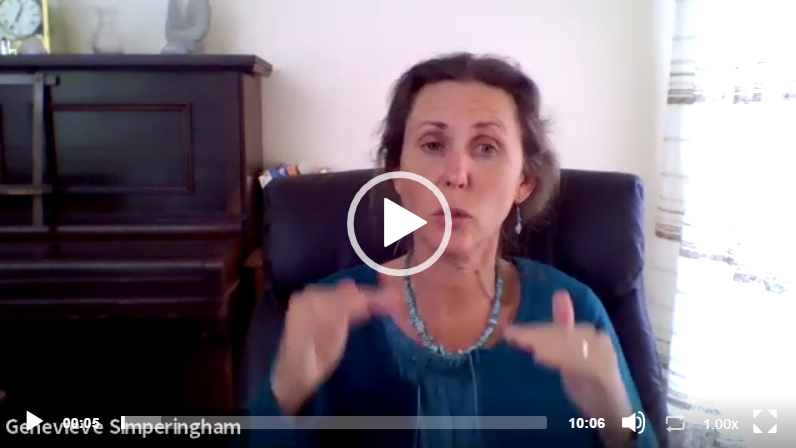
“When I showed my child more empathy they got worse!”
Sometimes the parent being less authoritarian, blaming or yelling and more caring can seem to result in some big meltdowns! Hang in there, this is probably just your child working through a backlog of frustrations. They either couldn’t express these frustrations before or when they did they felt judged and rejected.
The child will pick up that their parent now has more patience and more empathy to hear their frustrations. So they can experience quite the swelling of frustration, sadness, anger and even rage that has built up when the relationship has been filled with conflict. It may be difficult to listen to your child expressing strong feelings and complaints. But your child gaining your understanding of their struggles and frustrations plays an essential role in bringing about more healing, and understanding. And eventually greatly increased cooperation and depth of connection in the relationship.

5 FREE Discipline without Punishment Videos
Meg’s experiences with her strong-willed child
Meg Rodney, one of our peaceful parenting mentors shares a little about parenting her strong-willed son:
My strong-willed son was not peacefully parented from the get-go. I always envisioned being a calm, sweet mama whose kiddos did the right thing because it was the right thing. I thought to myself, “I’m nice. My hubby is nice. We were both ‘good’ ‘easy-going’ kids. We’ll have ‘good, easy-going’ kids.
Alas! My oldest was anything but easy-going. He was contrary and moody and felt things so intensely! He had a very strong sense of fairness. We had such a hard time getting him to behave and listen. Punishments were resorted to and we were constantly shifting our rewards for him because we couldn’t figure out his ‘currency’. We couldn’t motivate him. He was so strong-willed, and the parent I had become to him broke my heart. It left me feeling awful about myself. I didn’t want to be punishing him all the time, but I thought that there was no other way to parent a strong-willed child.
When I first discovered some of the peaceful parenting techniques, I remember thinking, “I can see this working for my youngest. But there is no way it will work for my oldest”. That some of the techniques might be handy but my oldest didn’t have that internal eagerness to please that my youngest did. I remember thinking he needed to learn to take responsibility for his actions and to understand his role when things didn’t go right.
Over time, more concepts started to click with me
The underlying cause/issue/feeling was looked for, instead of reacting to the behaviour. I began understanding the need to connect before all things. Before correcting, before transitioning, and before requesting. I began to understand my own actions and how they were actually disrespectful. When I would interrupt my son’s important work (play) in order to have him do something I deemed more important. When I would bark orders, or give exasperated sighs. Or I would try to get him to see my side without trying to see his point of view. How I minimized his feelings by not letting him have them, etc.
Once I started employing peaceful parenting concepts in our daily lives, my relationship with this strong-willed boy transformed
When he felt respected and valued, he began to treat me, my hubby, and our other son with more respect. Once allowed to feel what he felt, he was able to see how his actions might affect other people. As soon as I saw his behaviour as communication, I could slow down and address his heart. Was the transition easy? No way. Did his behaviour instantly improve? Nope. Was it worth the long nights of rage and long talks? Absolutely.
I now believe that not only can strong-willed children be peacefully parented; but by parenting with compassion and respect, the strong-willed child gets the strong foundation needed to reach their full potential. Peaceful parenting does that for all children, but I think the difference is more profound with strong-willed children.
Holding your child with love, not force
Spirited children are often great communicators. They can have these mega minds and present the most appealing arguments to support their current cause of the moment. It’s important that we truly listen and show them that we’re able to be flexible. Yet what they want and what they need, like for all kids, isn’t always the same thing.
So yes, they need us to really listen and work with them. But, it’s also important to know where to hold the loving limits. These are kids who can often go at life full-throttle without always being able to appreciate or accept their limitations, or other people’s limitations. They hence can crash and burn out at times.
It’s important not to put all the blame and responsibility to change on their young shoulders. They feel at the mercy of their strong frustrations and need us to provide relief. Through our loving limits, heartfelt empathy and lots of stress-releasing play and laughter.
They need to know that we can forgive them and hold their goodness in our minds and hearts even when they are themselves so at the mercy of their very strong emotions and desires. Even when those strong emotions and desires lead to the difficult and even aggressive behaviours. They also dearly need for their strengths, their many gifts and their contributions to be recognised and valued.
Parenting my strong-willed son
When my son was young, and even through his teenage years (he’s now 18), I regularly had these moments of “Oops hang on. We need to slow things down.” when I’d realised that we were just doing way too much doing and he was all frazzled. My son gives his endeavours his 100%, yet all that dynamic energy can be exhausting.
So at times I’d follow my instincts and put on the brakes
Saying no to play dates, the skate park and then putting on a movie when he couldn’t slow down and wanted more entertainment and excitement. I’d hold steady in response to those big cathartic upsets that would seem so sad and heartbreaking for him. He so passionately wanted to play with his friend, go to the park, or watch a DVD. Boy does it take a lot of strength, love and will to hold strong in the face of our cherished child being so heartbroken as a result of us saying no. Oh my gosh, the passion!
But it was the times when I really put on the brakes that would help him slow down and make his way back to greater peace and contentment. We would sit it out at home, and I would make myself very available to him. I would pour out my empathy when he found himself sitting in the discomfort of feeling restricted. It was these very times that I’d see him slowly but surely landing back into himself.
There would be some upset and then lots of cuddles. I would smile as I watched him remembering how much he enjoyed playing for hours with his cars and his blocks, Lego, finger knitting, skating or making his hut in the garden from bits of wood and branches or spending hours doing his art. He’d become so calm and settled again, but still never stopped vocalising while awake!
I shudder to think about the battles that would have ensued for my beautiful boy had he grown up with parents who were focused on forcefully controlling, containing and taming his often larger-than-life energy, strong opinions, strong feelings and passion.
The strong-willed child is likely to fight or resist cooperation with a lot more determination and wit than most children
Parent and child can get caught in such power struggles filling daily life with stress, conflict and turmoil. Instead of seeing your child as being difficult, see them crying out to feel truly seen and heard.
If you have a highly-spirited child, you’ve got your work cut out for you. These kids need loving limits for sure, but they also need lots of warm connection and fun. They need to be treated with care and kindness.They need for our love to be bigger than our urge to react.
Labels can cause children to feel defeated, trapped and misunderstood
It’s all too easy for these kids to become labelled as being too intense, demanding, difficult, controlling, stubborn and generally too much! These children tend to be very sensitive and pick up very early that adults view them to be difficult, contrary, oppositional, inflexible, naughty, selfish, and a handful.
Just pause as you read this and reflect on if or when you’ve felt judged in some of these ways, and just sit into how that feels. If you genuinely took a moment to do this, the resulting insight is possibly the single most important thing you’ll need to do again and again. Remember to keep your heart open to your strong-willed child.
Identifying and challenging these labels (yes even in the secrecy of your mind!) is essential if the child is to escape growing up feeling that they’re too much for their family to cope with. Children can feel powerless and hopeless and destined to be “too difficult” under the weight of such projections. A negative feedback loop of increased stress, pressure and sadness ensues.
Stressed parents need to somehow figure out how to keep coming back to the kind-hearted interactions and rituals which increase connection and compassion and keep the balance. If you struggle with this, consider doing one of our eCourses; the videos, audios and step-by-step processes really break it all down and reduce overwhelm.
The journey from feeling powerless to regaining your confidence as a parent
The more the parent can see and own how they are contributing to the dynamic, (we’ve all been trained to blame), the more relief they can bring to their child. Thereby inviting them into a more cooperative dance where the needs of both parent and child are important and valued.
Each time the parent reframes their view of the incident to include consideration of the child’s stress levels, a shift can happen. “That was really stressful for me and for her, we both get really stuck in being reactive”. Reframing the situation to connect with and care about the feelings and needs of oneself as the parent and the child helps to soften the hearts again.
Each and every time that the parent successfully regains compassion for their child is always a victory!
Instead of seeing themselves as the victim of their child’s intensity, the parent regains their role as the parent whose job it is to help their child. This process of softening our hearts as parents in very difficult situations is not easy, it can be hugely difficult and sometimes can be a project over several hours, days, weeks or even months, but it’s generally what’s most needed to regain more harmony.
Transitioning from traditional to peaceful parenting isn’t without its challenges. It’s tricky especially to be in the middle ground where you’ve committed to not yell or punish, yet you’re still grappling to learn and practice the new skills. But hang in there; it’s so very worth it. You’re likely changing patterns that have been passed down through the generations. Inch-by-inch change can happen. Try to be as patient with yourself as you’re endeavouring to be with your child.
The original version of this article was first published in The Natural Parenting Magazine
Genevieve Simperingham is a Psychosynthesis Counsellor, a Parenting Instructor and coach, public speaker, human rights advocate, writer and the founder of The Peaceful Parent Institute. Check out her articles, Peaceful Parenting eCourses, forums and one-year Peaceful Parenting Instructor Training through this website or join over 90,000 followers on her Facebook page The Way of the Peaceful Parent.

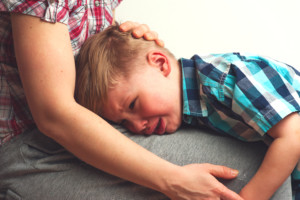
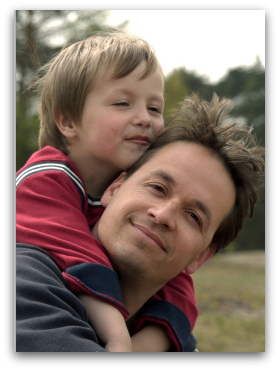

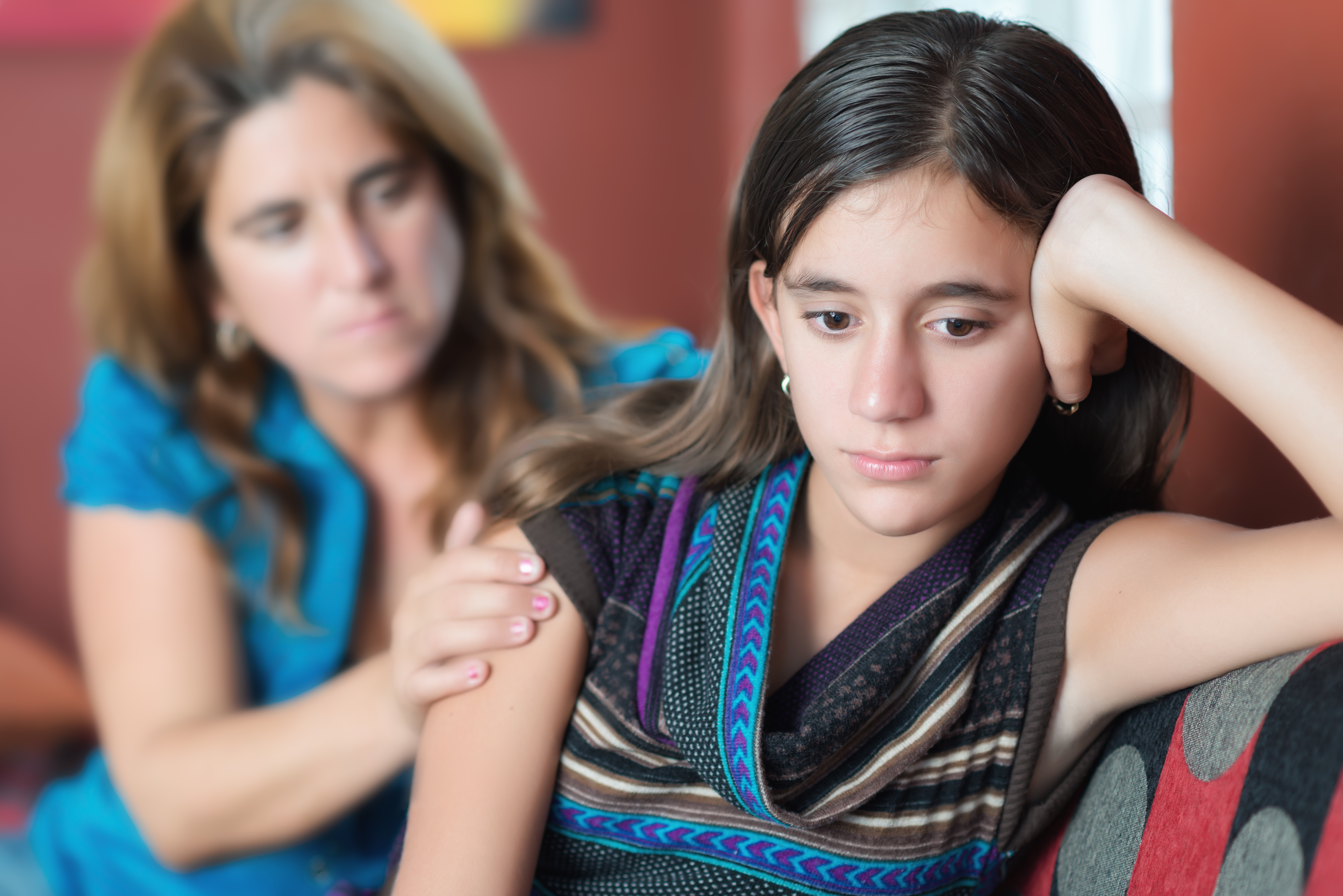



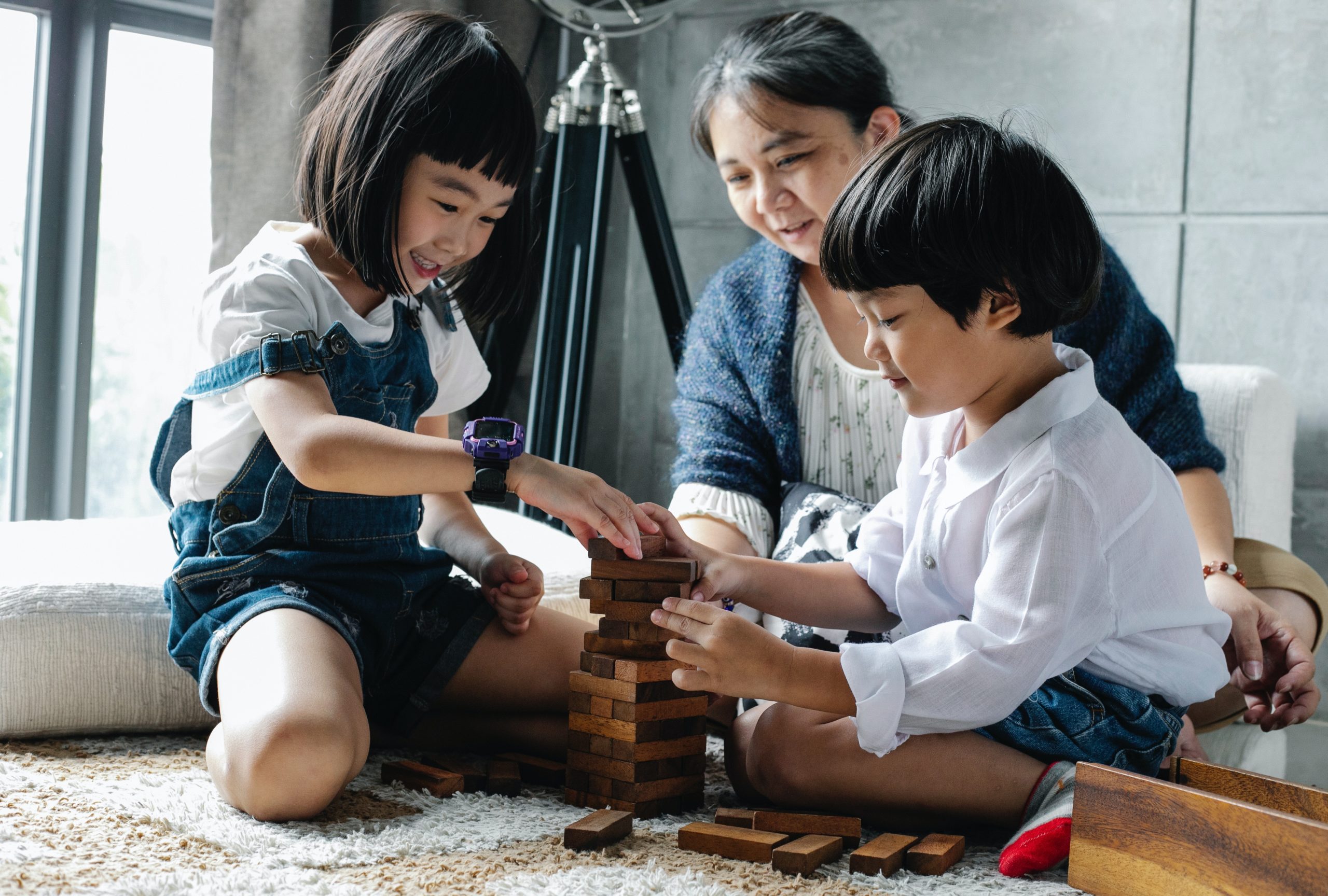
Hi,
I have read your article and a similar one on aha parenting and I totally agree with your explanation but I am missing a few pointers to help!!!
I manage most of the time to work with my little boy when he doesn’t want to do things by getting him to to a lot of things himself giving him more opportunity to make decisions etc.
I am having an awful time trying to get him dressed! He just wont do it without a fight and making him do it!
Obviously we do have to get dressed in the morning in order to leave the house for Nursery/work.
I have tried everything;
Ask him to help – doesn’t want to.
Doing it in 5/ 10 / 20 mins – doesn’t work.
Getting up earlier and all going up stairs after breakfast before any other activities to get dressed and then he can watch telly, play etc if he likes. – Doesn’t work.
Asking him why not? Just says he doesn’t want to.
This is every day…..it is waring me down and I hate wrestling with him to do it but I have to make it to work on time!
I have tried on none nursery days to have more of a lazy morning and work at his speed and still no joy.
We do spend lots of time together each day and also in evening after work. I can honestly say we connect lots throughout the day and I love spending time with him.
Please do you have any suggestions? He is 2 and 7 months very good at conversation and understanding when you talk to him. Very energetic. Loads of fun. A Joy!
Many Thanks
Katie
Katie, I wonder if you might find some helpful tips in this article: https://www.peacefulparent.com/dissipating-power-struggles-with-your-child/ From that article: See the power struggle as your cue to slow down and truly listen to your own feelings and bring in some self-empathy first; “oh wow this is so stressful, I feel so stretched right now” (even 5 seconds can start to change the mood). Then truly listen to your child and practice active listening and generally in one way or another, remind your child (whether they’re a toddler, a teen or anywhere in between) that you’re really there for them. Show your child that you’re really truly caring about what’s going on for them, what they feel and what they need.
When a child is digging in their heels and the parent keeps trying to coax them, parent and child both get into a tug of war, both super focused on their agenda. Mum: “you need to get dressed”. Child: “I refuse to get dressed”. What usually works best at these times is to bring the focus back to connection. Maybe you could factor into these mornings 10 minutes of quality one on one time, to help him feel really connected with you. I wonder if this is his way of communicating that he feels resistant to leaving the house and separating from you, it could help to name that: “oh honey, because you don’t want to get dressed, I wonder if you wish we didn’t have to leave?” showing care, openness and empathy. Granting his wish in fantasy “wouldn’t it be great if I didn’t have to work and we could stay at home together all day long!” Bringing in magic, warmth and humour can really help to take the tension out of power struggles: “Wouldn’t it be great if we had a magic carpet and I could take you to nursery on the magic carpet!! What would the other kids think of that?? And wouldn’t it be great if all the children were allowed to go to kindy in the pjs!! How funny would that be!!” Your aim is to help him feel less alone with whatever stressful feelings are driving his resistance. He himself doesn’t understand why he resists and so can’t put words to it, but when you show that you’re thinking and caring about the feelings driving his resistance, he may feel very relieved.
Children easily develop resistances when some uncomfortable feelings have now become associated with that thing or activity or food or place or person. It sounds like this has happened because even on non-nursery days he doesn’t want to get dressed, so taking the tension out of the topic of getting dressed is the way to go. It’s not easy to maintain a calm patient light hearted demeanour to help our child feel less pressurised, but that’s usually what’s needed.
Another peaceful parenting technique that could help (it’s a trial and error thing often hey!) is to hold the limit but stay present and calm and empathic. You can read my article “setting limits can bring healing tears and tantrums”. First connect with him and give some attention to his activity he was engaged in. Then: “It’s time to get dressed. I know that getting dressed is hard for you honey, so I’m going to stay with you now honey until you are dressed. I know it’s hard, I really care and I’m here to help you. How about I give you a big hug and fill you up with all the energy you need to put on your clothes? Yes honey you wish you didn’t have to, you find this sooooooo very hard don’t you (facial expressions of empathy). Let’s just focus on one bit at a time, do you want to put on your pants, your top or your socks first?”
Making it fun and playful is another way of taking the tension out of a situation that has become loaded with stress for a child: “ok if you’re not going to wear your pants, I’ll wear them today and put his pants on your head” which he’ll probably think is hilarious. Really get into being silly. Larry Cohen in his book Playful Parenting (amazing book!) talks about using cuddly toys or dolls or other figurines and enacting the challenge the child is having.
Problem solving is another approach to take: “This is a really tricky one isn’t it. We need to leave in ten minutes and you don’t want to get dressed. Hmm I can’t figure this one out, any ideas?” Children love questions, and love challenges, questions really engage their curiosity and sense of challenge. Many parents are surprised at how engaged their otherwise defiant kid becomes with this problem solving approach. It gives them more involvement. It’s natural to either submit or rebel when feeling controlled (at any age). All these approaches help the child feel more involved, cared for and engaged.
When my son was that age, he loved a challenge and was very active and he nearly always really enjoyed it when I gave him the challenge of getting dressed/ getting his bag and putting it by the front door/ putting lego back in the box (whatever) within a specific time frame. I would say “do you think you could get all those pieces of lego back in their box within the count of mmmm let me think, maybe 20? Do you think you could do that? To which he’d inevitably step up the challenge and call out “15!!! Start counting now” and I would count as I walk around doing other bits. He seemed to find it endlessly satisfying and enjoyable, and I guess it’s a way of maintaining connection and engagement as well as the fun of the challenge while doing something that’s otherwise boring.
Wow. Thank you so much for such a comprehensive reply. I really appreciate the time you took to write it!
Some great ideas that I have not tried so I will work through them and see what works!! 🙂
Shall print it out for Dad too! Lol.
Thanks so much
Blessings
Katie
You’re welcome Katie,
they are thoughts that I’ve been wanting to write out anyway, I can put them into a post for future access. It’s such a common struggle! Good luck!
Hi,
I got a hope while going through your article, that you can help me . My elder daughter is 10 years old now. She is pulling her eye brows and eye lashes since last December. We consulted several psychologist, psychiatrists, and even dermatologists. She was given some relaxation exercises, still she is not able to control herself from pulling. She was given one medicine “Anafranil” of 25 mg for one month to reduce her anxiety. But as there is no change, doctor asked us to better stop the medication. Now we got an appointment with a child psychologist on 15th of November.
One noticeable fact is that she is pulling during school hours. When we went to our home town during school vacasion, she almost stopped this habit. But when we reached back after 2 months, she again started this habit. She is not bad in academics. But she is sensitive and introvert. But if anybody is ready to listen her, she becomes a chatter box to them. She takes time to mingle with others. Her relation with her younger brother who is 3 1/2 years is really good. She likes to be a responsible elder sister for him.
In the beginning stage she was very anxious about me and the younger son, about our safety at home when she goes to school. My husband used to go out of country for 1 or 2weeks in a month. At that time I feel, she is feeling insecure. But nowadays she is not bothered much.
By reading your article, I felt you can guide me and my husband to help our child to overcome her present state of mind. Please help us……
Expecting your reply ….
Thanks
Misha
Hi there Misha,
Yes I’d like to help. I only just spotted your message. Maybe we should make an appointment, as it’s very specific and I’d like to know more of the family history. What I would talk to you guys about is the ways in which you can strengthen her sense of security. There are many moments in day to day interactions that can either build up or compromise a child’s inner peace, self-esteem and self-confidence, and these differences can be learned and applied.
Can you email me to genevieve @ peacefulparent.com (without the spaces) and let me know where you live and time zone and if you’re interested in making an appointment and we’ll take it from there. You can read more about my appointments under the services tab of this website.
Genevieve
I live in New Zealand but work with clients around the world via phone or video conferencing.
This is a very informative article for sure! I’ve looked into a lot of peaceful parenting but I’m really struggling to find tips for when children are very young. Most of what I read is for about the 4 plus age range. My son is 14 months old, running around and getting into everything but not able to speak yet, and I’m not sure he understands much reasoning. I want to parent this way but how do you start out? I have purchased several books but the early years seem to be lacking. I appreciate any help. Thanks 🙂
Megan
Hi Megan, two books that come to mind that are really helpful and specific in applying this model of parenting in that first couple of years are: The Aware Baby by Aletha Solter and Heart to Heart Parenting by Robin Grille. Robin goes through all the stages of development and the potential consequences of needs being met or not being met at each stage. There’s a wealth of great information for parenting through the months that you’re in and are ahead of you.
Wow, thank you for this beautiful article!
I really connected in a way that my eyes started tearing.
My daughter is just like you describe it. I see the beauty in that power, but when they meet my edges, then the conflicts start.
During my team coach training I learned about the concept of ‘kissing someone over an edge’! And this is what you so beautifully describe!
So I am saying a loud YES to that next time ‘sparks fly’. I will bring fun and compassion in, while holding my NO.
Thanks so much for sharing your light!
Fabienne
Fabienne, I’m so glad that the article resonated so strongly for you. It’s clear that it really speaks to what feels right in your heart. Good luck with kissing your daughter the next time she’s losing her balance.
This comes exactly at the right time. Awful ongoing power battle for years … tiny house no space. big city. 4 years play zombie in school. Now home since sept … he is 8. He is on his way to find himself again.
We were on a great trip last month for 30 days in sunny quiet arizona. No problems.
Back home after a few days behaving as before. Even though many plans and ambitions he is responding even heavier to the city life. I am stuck and can’t leave … waiting 4 years now. Things are taking a good turn now financially and his 3 year old sister is good company so hopefully we can move to a quiet home in the woods somewhere soon… thank you from the bottom of my heart.
Mina, I’m glad the article resonated with you. It sounds like his heart is really in nature, and perhaps you’re a slightly different mother to him when you’re out in nature or when you’re in the restricted space in the city. Good that things are moving in the right direction for you to change your lifestyle to better meet all the needs. Genevieve
[…] next time, or to rebel, as it's human nature to resist being controlled and especially strong-willed children can't resist the challenge of trying to regain their power in other […]